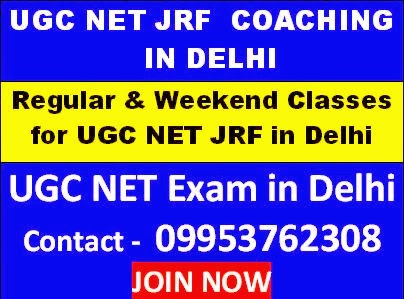UGC NET Criminology Paper II and Paper III ( Part A & B )
Unit – I
UGC NET Criminology : Definition and Scope, Criminology and other Social Sciences; Legal, Social and Psychological Aspects of Crime; Traditional Crimes – Crimes against Property and Person;
Modern Crimes : Organized Crimes, Socio – Economic Crimes, Corruption, Cyber Crimes, Environmental Crimes, Terrorism and Insurgency; Crime and Politics.
Unit – II
Criminological thought in Ancient India and Abroad; Classical School and Neoclassical School; Positive School; Cartographic School; Sociological Theories – Social Structural Theories and Social Process Theories; Economic Theories of Crime; Critical Criminology / Radical Criminology / Labelling perspective.
Unit – III
Constitutional Theories : Body Types, Hereditary Traits, Endocrine Glands; Behaviourist Theories : Drives, Motives, Attitudes, Frustrations; Psycho-analytical Theories; Psychopathic Personality; Mental Health and Criminal Liability; Application of Psychology in Police, Courts and Corrections.
Unit – IV
Criminological Research : Importance and Types; Research Questions and Hypotheses; Research Design; Sampling, Data Collection, Data Analysis, Interpretation and Report Writing; Statistical Application in Criminological Research; Sources of Crime Statistics in India and Crime Trends.
Unit – V
Social Change, Social Disorganization and Social Problems; Victimless Crimes : Alcoholism, Drug Addiction, Beggary, Commercial Sex, Suicide; Family centred Crimes : Dowry, Domestic Violence, Child Abuse; Community Problems : Inter – religion and Inter – caste tensions and conflicts.
Unit – VI
Juvenile Delinquency : Concept and Causes; Pre – delinquency stages : Truancy and Vagrancy; U.N. Standard Minimum Rules for Juvenile Justice ( Beijing Rules ); Main Features of Juvenile Justice Act; Institutional Services : Observation Homes, Juvenile Homes, Special Homes, and ‘fit’ Institutions; Juvenile Aftercare Services.
Unit – VII
History and Theories of Punishment : Historical Development from Punishment to Correction and Reformation, Prison Reform since Independence; Types of Punishment – Simple and rigorous imprisonment – Capital Punishment – Views of Abolitionists and Retentionists; Current problems and challenges in Prison Administration; Indeterminate and Determinate sentence.
Unit – VIII
Prison System in India; Correctional Programs in Jails; Aftercare Services for Adult and Juvenile Offenders; Probation, Parole – Concept and Historical Development, Probation under Different Laws.
Unit – IX
Legal Approaches : Accustorical and Inquisitorial; Substantive and Procedural Laws – Criminal Liability, Strict Liability; Indian Penal Code – General Exceptions, Offences Against Property; Criminal Procedure Code ; Cognizable and Non – Cognizable offences, Bailable and Non – bailable, Compoundable and Non – compoundable offences; Investigation of Crimes; Complaint, F.I.R., Powers of Police Officers, Arrest, Search, Seizure, Police Custody, Judicial Remand and Bail; Types of Evidence, Admissibility of Confession, Dying declaration; Rights of accused, Rights of victims, Rights of women in custody, Rights of prisoners.
Unit – X
Victimology : Concept, Origin and Development, Need to Study Victims, Victim Typology, Role of Victim in Criminal Phenomenon – Victim Precipitation; U.N. Declaration on the Basic Principles of Justice for Victims of Crime and Abuse of Power; Victim’s Rights – Fair Access to Justice, Restitution, Compensation, and Assistance; Victim Compensation Schemes in India; Human Rights – Protection of Human Rights Act.
“ugc
net jrf labour laws”
“ugc
net jrf sociology”
“ugc
net jrf life science”
“ugc net jrf exam”
“ugc net jrf journalism”
“ugc net jrf journalism”
“ugc
net jrf education”
“ugc
net jrf economics”
“ugc net jrf psychology”
“ugc net jrf psychology”
“ugc
net jrf mass communication”
“ugc net jrf geography”
“ugc net jrf geography”
“ugc
net jrf paper 1”
“ugc
net jrf home science”
“ugc
net jrf history”
“ugc net jrf political science”
“ugc net jrf human resource”
“ugc net jrf hindi”
“ugc net jrf commerce”
“ugc net jrf management”
“ugc net jrf computer science”
“ugc net jrf political science”
“ugc net jrf human resource”
“ugc net jrf hindi”
“ugc net jrf commerce”
“ugc net jrf management”
“ugc net jrf computer science”
“ugc net jrf English”
“ugc net jrf coaching”
“ugc net jrf 1st compulsory paper”
“ugc net jrf library & information science”
“ugc net jrf study material”
global teachers academy
D-2, Arjun Nagar Safdarjung Enclave, New Delhi
Near Green Park Metro Station
Ph. 078-380-239-56 , 078-380-243-65
http://www.gtah.net/
“ugc net jrf 1st compulsory paper”
“ugc net jrf library & information science”
“ugc net jrf study material”
global teachers academy
D-2, Arjun Nagar Safdarjung Enclave, New Delhi
Near Green Park Metro Station
Ph. 078-380-239-56 , 078-380-243-65
http://www.gtah.net/
www.ugcnetd.com
https://www.facebook.com/ugcnetcoachingdelhiindia
https://www.facebook.com/gtadh?ref=hl
https://www.facebook.com/ugcnetcoaching.delhi
https://www.facebook.com/ugcnetcoachingdelhiindia
https://www.facebook.com/gtadh?ref=hl
https://www.facebook.com/ugcnetcoaching.delhi
|
https://www.facebook.com/ugcnetcoachings
http://in.linkedin.com/in/ugcnetcoaching http://ugcnetjrfcoaching.wordpress.com |
|
http://ugcnetd.wordpress.com
|
|
http://ugcnetcoachingugc.wordpress.com/
|
|
http://ugcnetcoachings.wordpress.com/
|
|
http://ugcnetjrfcoachings.blogspot.in
|
|
http://ugcnetgtah.blogspot.in/
|
|
http://netexamcoaching.blogspot.in/
|
|
http://ugcnetpsychologycoaching.blogspot.in/
|
|
http://ugcnetcommercecoaching.blogspot.in/
|
|
http://ugcnetmanagementcoaching.blogspot.in/
|
|
http://ugcnetexamcoaching.blogspot.in/
|
|
http://ugcnetenglishugc.blogspot.in/
|
|
http://ugcnetcoachings.blogspot.in/
|
|
http://ugcnetonlinecoachng.blogspot.in/
|
|
https://www.youtube.com/watch?v=OMJnpTIwKuY
|
|
https://www.youtube.com/watch?v=yIIl90pCwAI
|
|
https://www.youtube.com/watch?v=BfgfKMwfpsk
|
|
https://www.youtube.com/watch?v=z8oNow4w9-A
|
|
https://www.youtube.com/watch?v=yMRtgqHPnfA
|
|
https://www.youtube.com/watch?v=mzW2NoQZUbM
|
|
https://www.youtube.com/watch?v=ePCdZjXmVgc
|
|
https://www.youtube.com/watch?v=XV9rT3b2LZI
|
|
https://www.youtube.com/watch?v=2UouOJJtCyc
|
|
https://www.youtube.com/watch?v=m1kzxQVJdds
|
|
https://www.youtube.com/watch?v=0OsSCh8wpSU
|
|
https://www.youtube.com/watch?v=owZeCkfMas8
|
|
https://www.youtube.com/watch?v=Lj0m3Bf8D5A
|
|
https://www.youtube.com/watch?v=UOuqF5DcEUw
|
|
https://www.youtube.com/watch?v=PDb46OwJESs
|
|
https://www.youtube.com/watch?v=34fYjBW_L0M
|
|
https://www.youtube.com/watch?v=lCc8lY8PpjU
|

